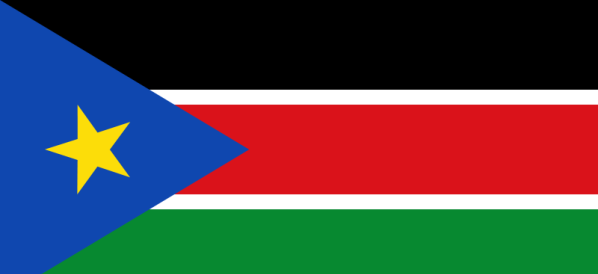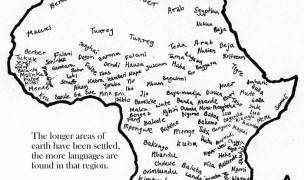 10 Terms
10 TermsHome > Terms > English (EN) > television networks
television networks
A television network is a central organization that distributes its programming to local stations. Usually a network sends its programs via satellite or cable, and programs are aired at the same time nationwide, through what is called the network’s program feed.
The four major broadcasting networks are American Broadcasting Company (ABC), National Broadcasting Company (NBC), Columbia Broadcasting System (CBS) and FOX. All are advertising driven as opposed to the Public Broadcasting System, which is listener, corporate/foundation and government-funded. Of the four major commercial networks, three were originally radio networks. ABC emerged after the FCC broke up the NBC monopoly NBC, owned by David Sarnoff and CBS, run by William Paley, moved onto television in 1948. With them, came the Nielsen Ratings which monitored the viewing habits of the American people.
The three main networks were in fact four when the FCC started to issue television licenses—until 1956 the Dumont Network also existed. Later, in 1986, ABC, NBC and CBS were joined by the FOX Network. Owned by Rupert Murdoch’s News Corporation, FOX now has stations in most of the 211 markets around the country The Big Four in recent years have been joined by two smaller networks, the Warner Brothers Network (the WB, owned by Time Warner) and the United Paramount Network (UPN, owned by Viacom, which owns Nickelodeon and MTV). Stations that are part of the WB or UPN networks are considered independents by many in the industry because only a few hours of broadcasting time originate from the network.
Stations that use network programming generally fall within three categories. First are those called network O&Os, owned and operated by the network. Stations not owned by the network that transmit their signal are called network affiliates; stations can also be part of station groups, which means a chain of stations are owned by an entity other than the network—for example Gannett (newspaper chain) owns a station group.
While networks are vertically integrated (they produce and sell all formats of shows and often own stations), three of the Big Four also form part of larger media conglomerates that are horizontally integrated. ABC is owned by Disney, CBS is owned by Westinghouse/GE and FOX is owned by the News Corporation. Although NBC is owned by NBC Enterprises rather than a conglomerate, it has entered into joint ventures with Microsoft in order to gain a foothold in cable with the news station MSNBC.
Since Ted Turner’s foray into cable, viewership has gone down for network broadcasting. Cable has seen the success of networks owned by Viacom (MTV, Nickelodeon, VH1), USA Broadcasting (Scifi Channel, USA Network), Time Warner (HBO, Showtime, CNN), TCI (Discovery Channel, Court TV) and Cablevision (American Movie Classics, Bravo, Independent Film Channel). The Big Four, in order to maintain dominance, have launched synergistic cable stations such as ESPN, owned by FOX and TCI, or NBC/Microsoft’s MSNBC. Until the opening up of the new format of digital television, viewers can expect to see more joint ventures into the limited marketplace.
- Part of Speech: noun
- Synonym(s):
- Blossary:
- Industry/Domain: Culture
- Category: American culture
- Company: Routledge
- Product:
- Acronym-Abbreviation:
Other Languages:
Member comments
Terms in the News
Billy Morgan
Sports; Snowboarding
The British snowboarder Billy Morgan has landed the sport’s first ever 1800 quadruple cork. The rider, who represented Great Britain in the 2014 Winter Olympics in Sochi, was in Livigno, Italy, when he achieved the man-oeuvre. It involves flipping four times, while body also spins with five complete rotations on a sideways or downward-facing axis. The trick ...
Marzieh Afkham
Broadcasting & receiving; News
Marzieh Afkham, who is the country’s first foreign ministry spokeswoman, will head a mission in east Asia, the state news agency reported. It is not clear to which country she will be posted as her appointment has yet to be announced officially. Afkham will only be the second female ambassador Iran has had. Under the last shah’s rule, Mehrangiz Dolatshahi, a ...
Weekly Packet
Language; Online services; Slang; Internet
Weekly Packet or "Paquete Semanal" as it is known in Cuba is a term used by Cubans to describe the information that is gathered from the internet outside of Cuba and saved onto hard drives to be transported into Cuba itself. Weekly Packets are then sold to Cuban's without internet access, allowing them to obtain information just days - and sometimes hours - after it ...
Asian Infrastructure Investment Bank (AIIB)
Banking; Investment banking
The Asian Infrastructure Investment Bank (AIIB) is an international financial institution established to address the need in Asia for infrastructure development. According to the Asian Development Bank, Asia needs $800 billion each year for roads, ports, power plants or other infrastructure projects before 2020. Originally proposed by China in 2013, a signing ...
Spartan
Online services; Internet
Spartan is the codename given to the new Microsoft Windows 10 browser that will replace Microsoft Windows Internet Explorer. The new browser will be built from the ground up and disregard any code from the IE platform. It has a new rendering engine that is built to be compatible with how the web is written today. The name Spartan is named after the ...
Featured Terms
South Sudan
On January 6, 2005, South Sudan became an autonomous region of the Republic of Sudan. On July 9, 2011, this southern region of Sudan will become its ...
Contributor
Featured blossaries
Marouane937
0
Terms
58
Blossaries
3
Followers
9 Most Expensive Streets In The World
 9 Terms
9 Terms
Browers Terms By Category
- Wine bottles(1)
- Soft drink bottles(1)
- Beer bottles(1)
Glass packaging(3) Terms
- Cosmetics(80)
Cosmetics & skin care(80) Terms
- Cables & wires(2)
- Fiber optic equipment(1)
Telecom equipment(3) Terms
- Architecture(556)
- Interior design(194)
- Graphic design(194)
- Landscape design(94)
- Industrial design(20)
- Application design(17)
Design(1075) Terms
- Festivals(20)
- Religious holidays(17)
- National holidays(9)
- Observances(6)
- Unofficial holidays(6)
- International holidays(5)




